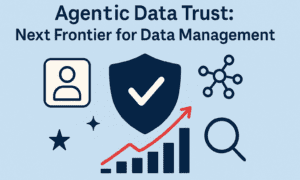The financial sector is very demanding of all the items of the infrastructure surrounding it – physical servers, transaction management systems, and data, of course. Managing financial data isn’t a piece of cake, so there are several major challenges associated with it:
- Security
- Privacy and regulatory compliance
- Quality
- Dispersion
- Scalability
- Technological obsolescence
Companies often struggle to pick the right solution for coordinating all the financial data within the organization. However, there is Salesforce, a popular CRM system, that could be a perfect match for the financial software stack.
Role of Salesforce in Financial Data Management
Salesforce is a cloud-based CRM that contains plenty of features that could benefit financial data management. Here are some of its crucial characteristics:
- Data security. Salesforce provides role-based access control to data, encryption, and audit trails. This system also supports all the regulatory requirements in the Fintech sphere.
- Real-time reporting. Salesforce provides opportunities for companies to create dashboards with real-time indicators of their financial performance.
- Scalability. Thanks to the cloud-based architecture, Salesforce supports the growing number of financial operations.
- Collaboration. Both customer experience and financial departments benefit from the exhaustive information about customers kept in the system.
- Mobile access. The Salesforce app is available on popular mobile platforms so that managers can get access to financial data at any time.
These features obviously help Fintech companies optimize their financial performance, reduce manual effort, enhance collaboration, and make more informed decisions. Salesforce can even be seen as a single source of truth in the company’s finances.
It often happens that businesses either have obsolete financial systems or implement several financial applications within the organization. This imposes difficulties on financial data management, so some extra steps while switching to Salesforce are required. For instance, it’s needed to send all data from an obsolete system to Salesforce or synchronize several financial systems at a time. To do all that, a strong data integration tool with export and import capabilities is required.
Data Export and Import in Salesforce
Salesforce has its own mechanisms for data transfer, though they aren’t always 100% suitable for all the use cases. Luckily, there are alternative data integration services that perform data load quickly and seamlessly to/from Salesforce. So, let’s review the principal methods for data export and import in Salesforce:
Data Export Wizard
This is an embedded mechanism for exporting data from Salesforce into a CSV file. Users can select any object for export, and it’s also possible to export all data at a time.
While this option is available right in Salesforce, which is really convenient, export of data in CSV format isn’t always the best and the fastest solution. And it absolutely doesn’t meet the real-time pace characterizing the Fintech sector.
Salesforce Data Loader
Another application provided by Salesforce for data operations is called Salesforce Data Loader. Unlike Data Export Wizard, it offers a broader range of services: export, import, and deleting data in Salesforce. All these operations can be done in bulk, which dramatically speeds up the process.
However, Salesforce Data Loader also has its limitations, which deprive of real-time data integration and analytics:
- Max. file size is 50MB
- Data packages only in XML or CSV format no larger than 10MB
Skyvia
Luckily, there is a tool that addresses data integration issues in Salesforce Data Loader and Data Export Wizard – its name is Skyvia. This cloud platform is designed for ELT integration, data warehousing, Reverse ETL, workflow automation, and other data-related tasks. This means that Skyvia can connect Salesforce to any of the 170+ supported sources for performing those data integration operations.
With Skyvia, you can:
- Import data from other financial systems and databases.
- Export Account list from Salesforce, for instance, in CSV format.
- Synchronize Salesforce data with other Fintech apps used in your organization.
- Replicate Salesforce data into a data warehouse for further analysis.
- Build advanced scenarios where Salesforce data travels through several sources, going through compound transformations and corresponding to indicated conditions.
All the above-mentioned procedures take no effort to set up and run because Skyvia’s environment uses a no-code approach. Moreover, you can try Skyvia for free or select the pricing plan that suits your business.
Integrating Salesforce with Financial Systems
Let’s have a look at the case of how the Exclaimer company made Salesforce a single source of truth across departments with the Skyvia integration. The company managed to simplify data transfer by connecting Salesforce to the in-house billing and subscription systems.
Now, Salesforce serves as a central hub with all the financial data. This guarantees a solid foundation for different teams as well as analytics experts for suggesting informed decisions. See more details on the case in the success story of Exclaimer.
Salesforce and Regulatory Compliance
Another benefit of Salesforce as a financial information hub within an organization is that it meets financial regulatory requirements. This tool has functions that allow its users to build compliance reports and dashboards in real-time. They provide insights into user activity and data usage, based on which it’s possible to detect any compliance issues.
Salesforce also natively connects with major compliance tools, such as monitoring systems and risk management platforms. Such integration ensures constant monitoring of financial data compliance with regulatory requirements.
Conclusion
Financial systems are present in all organizations of different sizes and spheres of operation. It’s natural because money is the base of the modern market system.
Fintech companies might experience some data management issues, such as data and quality. Moreover, data is often scattered across the systems, which prevents companies from having a unified view of things.
Salesforce could be an ideal solution for Fintech companies by being a central data hub for all the departments. Owing to Skyvia, it can absorb data from outdated financial systems and get synchronized with other apps. Its integration with compliance tools ensures the appropriateness of the financial data as well as the timely mitigation of risks.



































